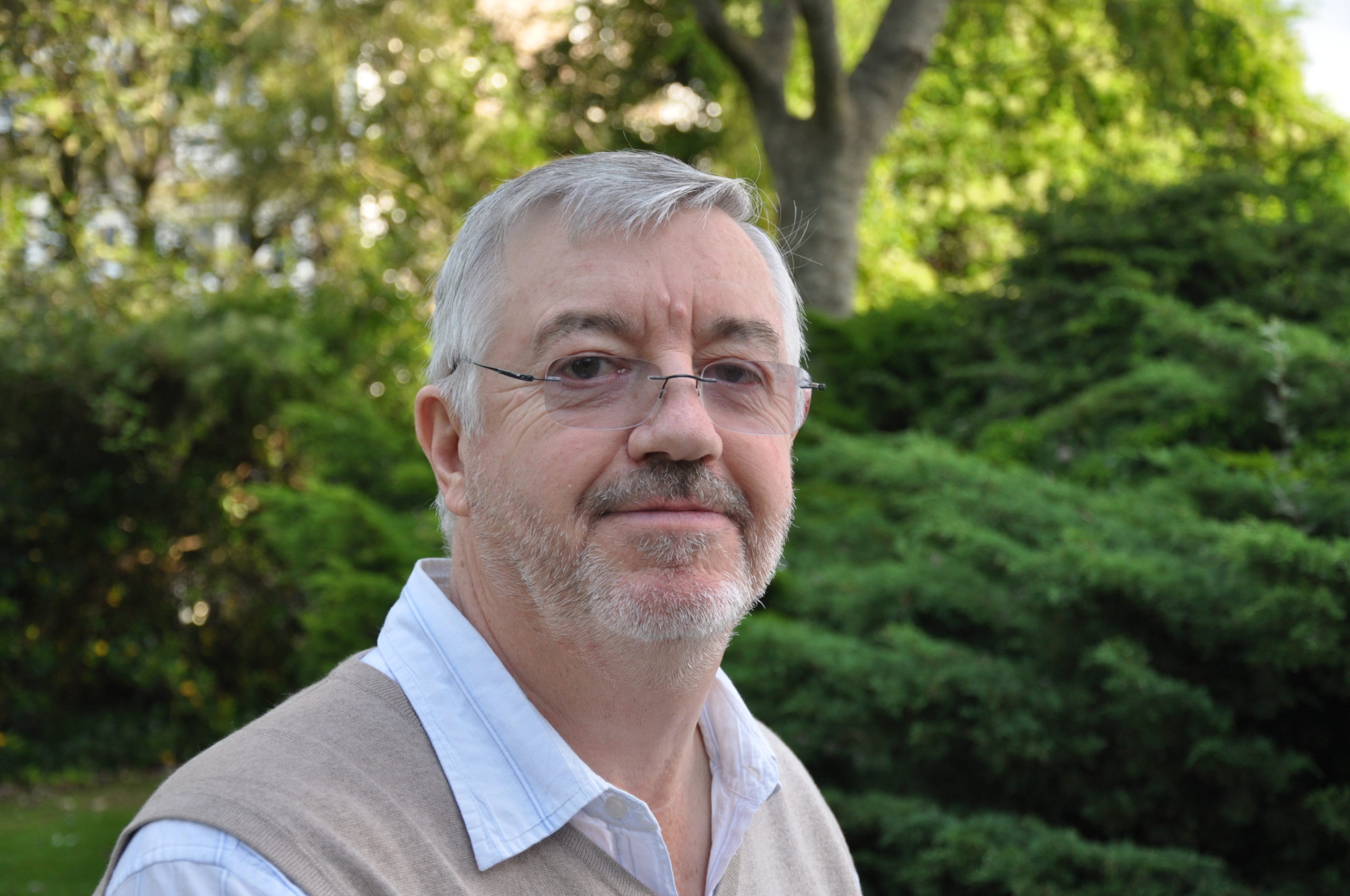A Blue Planet Tribute to Professor Trevor Platt
in Uncategorized
By Paul DiGiacomo, Samy Djavidnia, and Sophie Seeyave
As long-time colleagues and friends of Trevor Platt, we enthusiastically worked together with him on the creation and development of the Blue Planet Initiative. Much has already been written about the many extraordinary scientific contributions of Trevor. We would also like to pay a heartfelt tribute to the significant contributions Trevor made to ocean observing, to international coordination efforts, and to the Group on Earth Observations (GEO) in particular.
Trevor became involved in GEO through his role as Executive Director of the Partnership for Observation of the Global Ocean (POGO), which had been a Participating Organisation in GEO since its establishment in 2005. Trevor’s wife and closest colleague, Shubha Sathyendranath, was the POGO Executive Director at the time GEO was formed, and they actively worked together on POGO, GEO and then subsequently Blue Planet, as they did with every other aspect of their work.
In those early years, Trevor and Shubha made a direct and concrete contribution to GEO by obtaining funding from the Canadian Space Agency (CSA) to establish new programmes on the societal benefits of ocean observations: the Chlorophyll Globally Integrated Network, ChloroGIN, and Societal Applications in Fisheries or Remotely-sensed Imagery, SAFARI [among many talents, Trevor was also the king of acronym coining; in fact, he demonstrated his humorous and playful side by endorsing the acronym “ChloroGIN” proposed by colleagues after a nocturnal visit to the Plymouth Gin Distillery, during the inaugural workshop that formally established the programme]. Both of these programmes were among the first (if not the first) ocean-related initiatives to be included as GEO “Tasks”, and were often referred to by GEO as exemplars of successful capacity building activities.
Trevor fought hard to maintain POGO’s engagement in GEO over the years, and became quite passionate about raising the profile of ocean observing within GEO. “One of the lasting memories I have of my first GEO Meeting (Beijing, 2010) was of Trevor emerging from the plenary sessions to the exhibition area where I was manning the POGO booth, grumbling about the plenary’s focus on forests and agriculture. There was no mention of oceans throughout the whole of that Plenary, which was nothing short of scandalous in Trevor’s mind!” (~ Sophie Seeyave).
This was Trevor’s motivation for creating what was to become the GEO Blue Planet Initiative. The following year, GEO was calling for contributions for the next phase of its Work Plan, and Trevor saw this as a once-off opportunity to get the ocean officially included in GEO. One of the longstanding barriers towards this had been the initial focus of the GEO Work Plan around “Societal Benefit Areas” (SBAs), several of which could relate directly to a specific community (e.g. climate, biodiversity, agriculture). Conversely, the ocean was considered a cross-cutting theme, but not singled out as an SBA, which made it difficult for the ocean community to know how to organise itself within GEO. To address this, and with support from the GEO Secretariat, and from many other “ocean allies” within the GEO community, Trevor put together a proposal for an Ocean Task to be included in the 2012-2015 GEO Work Plan. This was accepted by GEO, and thus Blue Planet was born. The original name included “Oceans and Society”, a clear reflection of Trevor’s passion for highlighting the role of the ocean in sustaining our life and its inextricable and diverse interdependencies with our society.
The next step, which Trevor worked tirelessly on, and obtained CSA funding for, was the Blue Planet Kick-Off Symposium, held in Ilhabela (“beautiful island”), Brazil, in November 2012. Brazil was chosen because it was hosting the GEO Plenary that year, and the Symposium was held back-to-back with the GEO Plenary, although in a different location in Brazil. Trevor also had a former student and close colleague in São Paulo, Milton Kampel, who took care of the logistical arrangements and local funding for the Symposium. Trevor also took the opportunity to arrange for a meeting of the recently formed Nippon Foundation- POGO Alumni Network for Oceans (NANO) to be held back-to-back with the Symposium, which was a great way to involve young scientists from all over the world in the Symposium. Trevor was truly dedicated to teaching and capacity building, and this passion guided much of the early development of Blue Planet.
Sadly, Trevor was unable to attend the Symposium at the last minute due to a health issue, and neither was he able to attend the 2nd Symposium in Cairns, Australia, which he was also actively involved in organising. An unexpected development after the Kick-Off Symposium was the publication of a Blue Planet book, which Trevor very much took to heart. “I still remember very vividly when Trevor suggested I take the lead in pulling together the Blue Planet book, he was a man who chose his wise and convincing words with a lot of care – there was no room to let him down. It was such an honour to work with him on this project” (~ Samy Djavidnia). Trevor then assembled, and subsequently chaired, a Steering Committee for Blue Planet, with representatives of the main organisations within GEO that had contributed to the Blue Planet Task proposal: the Committee on Earth Observation Satellites (CEOS), the Global Ocean Observing System (GOOS) and the GODAE-OceanView (now renamed as Ocean Predict), and thus Blue Planet was ready for action.
Trevor’s role in the leadership of Blue Planet decreased as he stepped down as POGO Executive Director in 2014, but his vision and legacy live on as the Blue Planet Initiative continues to grow. “I remember sitting in many an ocean observing meeting (especially in Geneva), wondering how Trevor was going to bring about convergence toward Blue Planet goals, more so thinking there was no way that we would get there, but he never failed to amaze me with successful resolutions – often with a quick nod or glance over as if so say don’t worry, I’ve got this – and he always did!” (~ Paul DiGiacomo).
The Steering Committee now comprises of around 30 people from a variety of scientific, cultural and geographical backgrounds, and the Blue Planet network has expanded from being comprised mainly of data and service providers to include various stakeholder groups. The original focus on capacity development and societal benefit remains as strong as ever, with Blue Planet working with communities from the Caribbean to Cabo Verde and Bangladesh to Boston to address user priorities and ocean observation needs across the globe.
The GEO Blue Planet Steering Committee and community-at-large are forever indebted to Trevor for his early vision of an “ocean task” within GEO, and for bringing the ocean community together in this joint venture. He will be greatly missed – as a true friend, an honourable colleague and unstoppable force – but his legacy burns bright and we will all benefit from his intellect, perseverance and vision of a “Blue Planet”.

